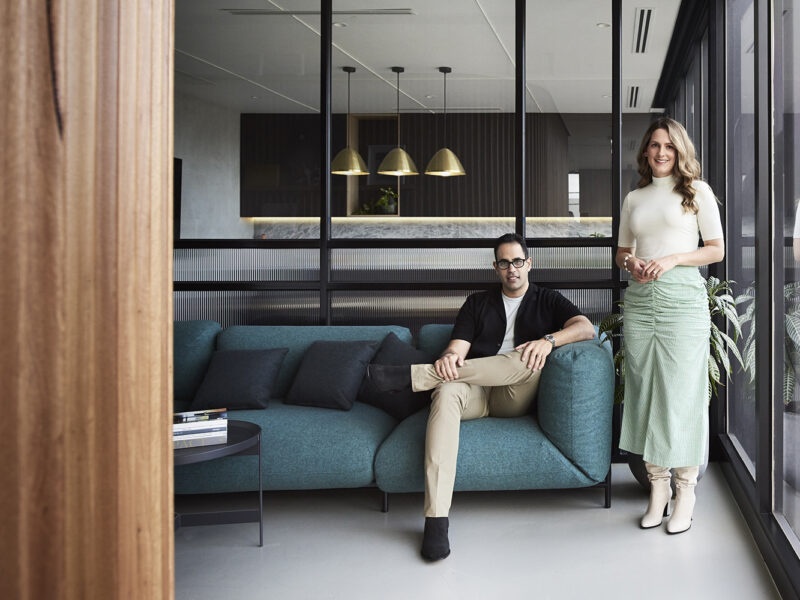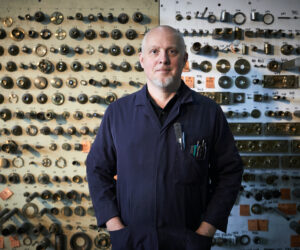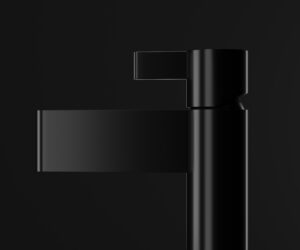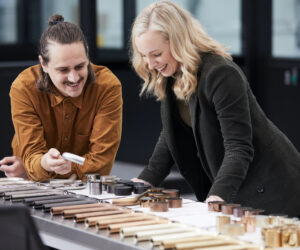Sussex pledges to be Carbon Neutral by 2023
Australian tap manufacturer Sussex commits to sustainability targets as it continues to highlight value of local craftsmanship
The pledge to be carbon neutral by 2023 involves a commitment to reduce energy and landfill output by 10% each year, and reduce packaging and water usage by 5% per year. This adds up to a 60 tonne reduction in Sussex’s carbon footprint every year until it achieves its ultimate goal of net zero.
The announcement comes as Sussex reveals it is now partnering with revolutionary carbon neutral housing developer Nightingale Housing as its preferred tapware provider over the coming three years.
Sussex employs more than 65 artisans across four sites in Melbourne’s north, manufacturing more than 400 products across seven core collections, within a vertically integrated system that ensures every component is manufactured locally. It’s one of the largest Australian tap manufacturers to own and operate its own foundry, where brass shavings during production are melted down and recycled to form the brass bars that go on to become tapware.
The pledge to be carbon neutral by 2023 is the latest in a string of sustainability initiatives undertaken by Sussex, which has been producing high-end brass tapware, showers and accessories in Melbourne for 25 years.
The company’s focus on sustainability, coupled with Sussex’s colour customisation, timeless design and precision fits, has seen the brand become an industry favourite with leading architects, interior designers and developers such as Elenberg Fraser, Biasol, Three Birds and Those Architects.
“Our commitment to be carbon neutral by 2023 is the culmination of years of focused efforts, and gives us a measurable goal to work towards. We see this as a big opportunity to instil optimism about the future of the local manufacturing industry in Australia, and to show what’s possible,” says Sussex’s Creative Director Vanessa Katsanevakis
In 2013, two years after Katsanevakis took over the business from her late father, the company conducted its first waste, energy and manufacturing audits to set it on a path towards more responsible operations. Sussex has since become a member of the Victorian Government Climate Change TAKE 2 Pledge Program. Between 2016 and 2020, Sussex has installed LED lighting upgrades at all four of its facilities, leading to greenhouse gas emissions reductions of at least 30% at each site.
In 2018, Sussex installed 100kw of solar panels to reduce factory greenhouse emissions by 131 tonnes, or a further 30% reduction in the site’s greenhouse gas emissions. In 2019, it reduced its overall greenhouse gas emissions by 36% and electricity use by 13%, compared to 2018, helped by the implementation of a 100 kW solar panel that reduced Sussex’s annual greenhouse emissions by 132 tonnes—equivalent to taking 40 cars off the road.
“Sustainability is not a new proposition for Sussex; it’s built into the very DNA of the company. But for the past seven years, we’ve been taking active steps towards more environmentally-friendly operations. As a manufacturer in 2020, it’s our responsibility to step up and address the climate crisis with tangible steps towards a net zero impact,” says Katsanevakis.
Last financial year, Sussex produced more than 59,000 products. While Covid-19 has presented its challenges for the company, it’s not unfamiliar territory for its leadership. Katsanevakis took the helm of the company in the wake of the Global Financial Crisis, when many Australian tap manufacturers took production offshore to compete on price.
This presented an early challenge in Katsanevakis’ leadership of the company: keep production local, or go offshore to compete on price. She committed to preserving Sussex’s legacy of local craftsmanship, harnessing the foundry and pivoting the brand to suit a burgeoning sector of the homewares market that sought luxurious products that were also locally and sustainably made.
“By committing to keeping production onshore, we’ve not only removed the need for international shipping in our production line, but we’ve also preserved and built dozens of jobs for local artisans. Every tap we make passes through the hands of a seasoned craftsman, and that has never changed,” says Katsanevakis.
In 2018, Katsanevakis was awarded Young Manufacturer of the Year by the Victorian Manufacturing Hall of Fame, and over the past five years she and her husband George have spoken at the Victorian Manufacturing Showcase, National Manufacturing Week and to Victorian secondary schools about the value of local manufacturing and industry.
“We are ardent supporters of the Australian manufacturing industry, and we want to instil the role it has in younger generations too. Particularly now, there needs to be a focus on supporting local jobs and preserving local knowledge and skill. If we can do that at the same time as harnessing innovative new technologies, I think we can see a revival of our manufacturing industry,” says Katsanevakis.



